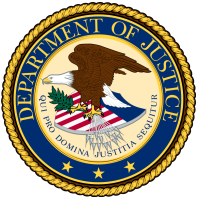
United States Alleges that the Pharmacist and Pharmacy Ignored Red Flags Indicating the Prescriptions Were Not Legitimate
Baltimore, Maryland - U.S. District Judge Richard D. Bennett approved the United States' consent decree with Ketan K. Dankhara, a Baltimore-based pharmacist, and Falls RX, LLC d/b/a Ultra Care Pharmacy Baltimore ("Ultra Care"), resolving the United States' civil allegations that Dankhara and Ultra Care violated the Controlled Substances Act ("CSA") in illegally dispensing controlled substances.
The consent decree was announced by United States Attorney for the District of Maryland Erek L. Barron and Special Agent in Charge Jarod A. Forget of the Drug Enforcement Administration - Washington Field Division.
"Under the Controlled Substances Act, pharmacists and pharmacies assume a critical gatekeeping function to prevent the diversion of controlled substances," said U.S. Attorney Erek L. Barron. "Just as prescribers cannot use their prescription pad as a blank checkbook to write prescriptions for controlled substances, the CSA and its regulations make clear that pharmacists have a corresponding responsibility to ensure the legitimacy of the prescriptions they fill. We will hold responsible those in the supply chain—manufacturers, distributors, prescribers, and retail pharmacies—who violate the CSA and illegally distribute controlled substances, fueling Maryland's drug addiction epidemic."
"Our pharmacists play a key role in the proper dispensing of controlled substances, helping patients, and protecting us all against the dangers of drug diversion," stated Jarod A. Forget, Special Agent in Charge of the Washington Division. "When pharmacists ignore 'red flags,' their dispensing contributes to the opioid epidemic. We at the DEA are working hard, every day, to investigate such behavior, and keep our communities safe."
The Government alleges that shortly after Ultra Care opened for business, Dankhara knowingly filled fraudulent prescriptions for controlled substances, ignoring red flags that should have acted as warning signs that the prescriptions were not legitimate. More specifically, on several occasions between at least May and September 2020, an individual came to Ultra Care and attempted to fill controlled substance prescriptions for a number of people at the same time, many of whom had never previously been to the pharmacy. At least several dozen of these prescriptions were fraudulent. Some of the fraudulent prescriptions were for the same drug, strength, and quantity, and were from the same prescriber and some were prescribed by an OB/GYN to individuals who were biologically male. Notwithstanding these red flags, Dankhara made no attempt to determine whether the prescriptions were legitimate, nor did he otherwise resolve the red flags. Further, on at least one occasion, Dankhara indicated on a fraudulent prescription that he spoke with the prescriber when, in fact, Dankhara later admitted that he had no such conversation. The Government alleges that Ultra Care is liable for these deficiencies.
Under the consent decree, in addition to paying a $15,000 civil monetary penalty, Dankhara and Ultra Care are required to identify certain red flags—including when a patient presents prescriptions written in the names of other people without a valid justification, and when the patient is biologically male and presents prescriptions from an obstetrician or gynecologist. Before filling prescriptions bearing those red flags, the consent decree requires Dankhara and Ultra Care to document in detail any indications of abuse or diversion and the steps they took to ensure that the prescription was valid and was issued for a legitimate medical purpose, and that the prescription would not be abused or diverted for illegitimate purposes. Under the consent decree, if the DEA determines that Dankhara or Ultra Care have violated any provision of the consent decree and/or if Dankhara or the Pharmacy do not implement the corrective action the DEA orders, the DEA can order Dankhara and Ultra Care to cease ordering, distributing, or dispensing controlled substances immediately.
The consent decree is not an admission of liability by Ketan Dankhara or Ultra Care, nor a concession by the United States that its claims are not well founded.
The Court's approval of this consent decree should remind pharmacists and pharmacies that the Department of Justice intends to use all tools at its disposal—both criminal and civil—to combat the controlled substances epidemic which continues to plague the United States, including here in Maryland.
U.S. Attorney Erek L. Barron commended the DEA Washington Division's Office of Diversion Control, Baltimore District Office for its work in the investigation. Mr. Barron thanked Assistant United States Attorney Alan C. Lazerow, who handled the case.
For more information on the Maryland U.S. Attorney's Office, its priorities, and resources available to report fraud, please visit www.justice.gov/usao-md and https://www.justice.gov/usao-md/report-fraud.
Last edited by a moderator:
